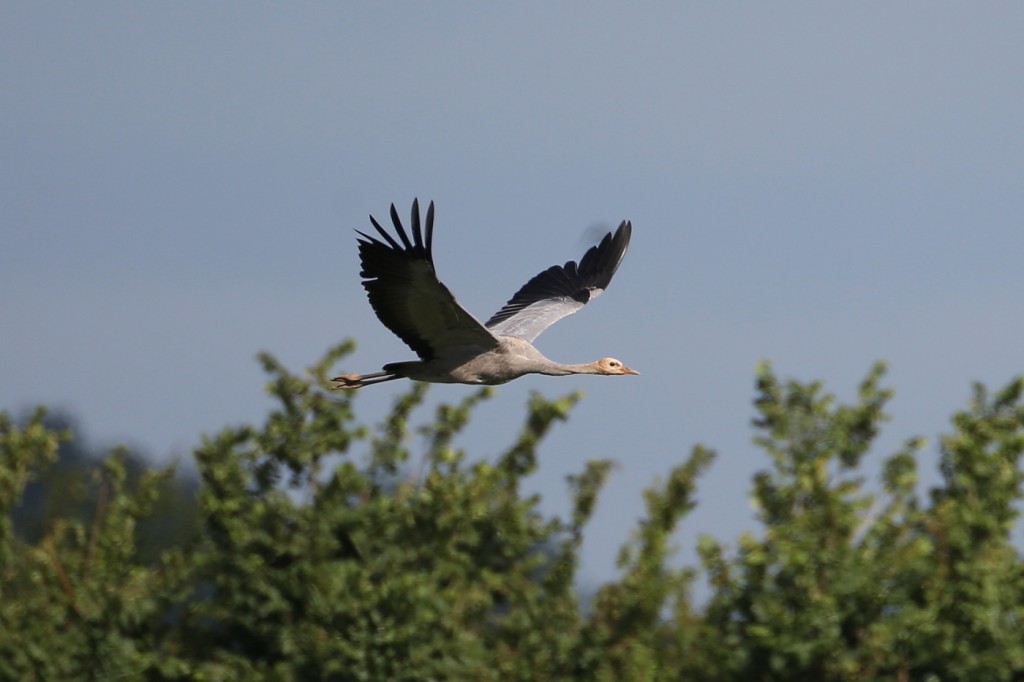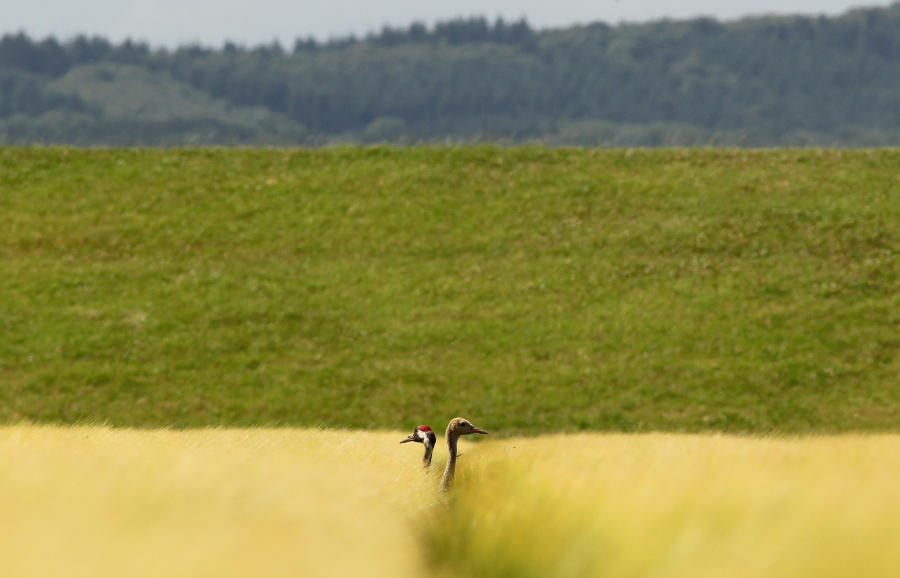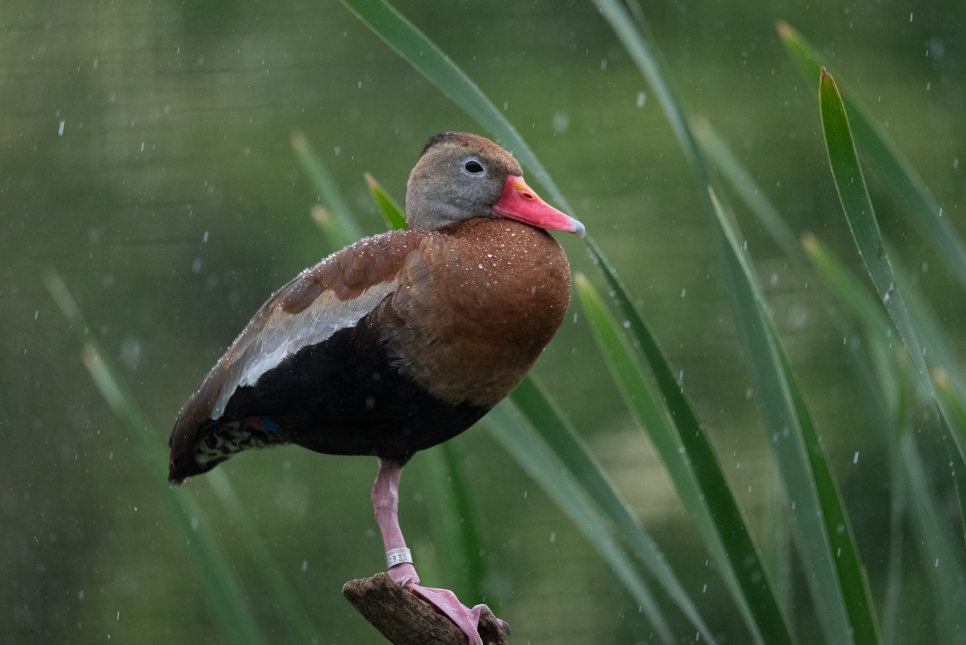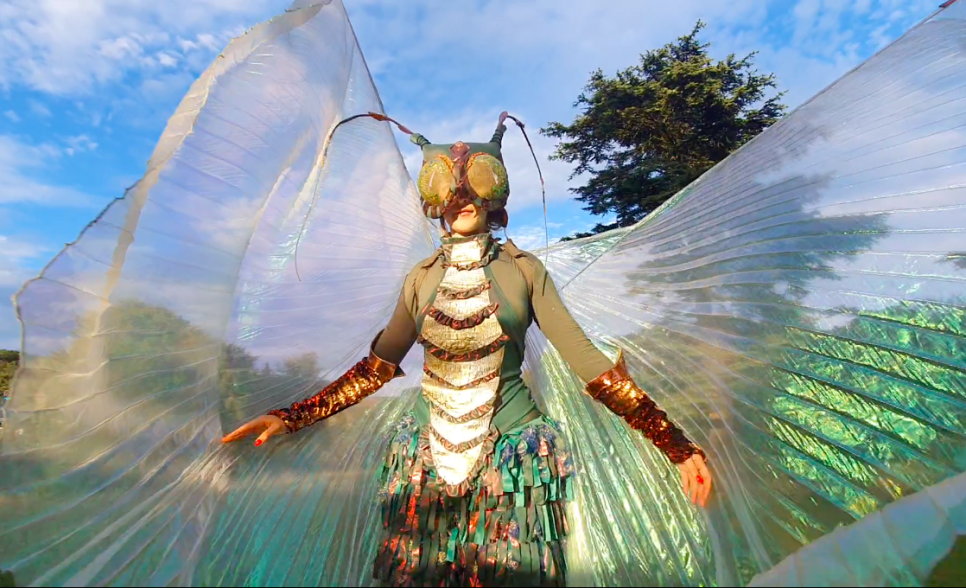First flight of wild young cranes in West Country for 400 years
Wildlife conservationists are celebrating this week after young wild cranes took to the air in the West Country for the first time in four centuries. And it’s a double celebration, with successful crane families in both Somerset and Gloucestershire.

The young cranes’ existence has been kept secret since they hatched in May in order to protect the families from being disturbed, but it can now be confirmed that one has been raised at WWT Slimbridge Wetland Centre in Gloucestershire and a pair on farmland on the Somerset Levels.
Now the young cranes can fly they are less vulnerable to their natural predators and are likely to travel away from the nests with their parents.
It’s a significant step for the Great Crane Project, which has been reintroducing cranes to the West Country since 2009. This is the first time that cranes from the project have successfully reared chicks.
This year has seen around a dozen pairs of the young reintroduced birds take up territories across the South West with eight of these going on to make breeding attempts – two of which have ended in successfully fledged young. It takes 100 days from freshly laid eggs to free-flying cranes and breeding attempts often end before the 100 days are up as there are many dangers along the way.
Dave Paynter, WWT Slimbridge Reserve Manager said:
“It’s long been my dream that we have cranes back in the West Country. That they’ve bred successfully is hugely significant. Cranes need wetlands to breed in safety, and part of the reason they became extinct is because people drained the wetlands they used.
“Thankfully we’re starting to restore those wetland habitats and that will help these magnificent birds to spread out across the country again.”

Damon Bridge, Great Crane Project Manager says;
“We’re all absolutely delighted – success for us has always been about seeing young raised in the wild take flight. To have young on the wing at in Somerset and at Slimbridge so early on is really fantastic and bodes well for the birds very quickly establishing themselves more widely in the south and west. The cranes are long-lived birds with many breeding attempts ahead of them and we are well on our way to our target of 20 breeding pairs in the South West by 2025.”
“It’s been a huge team effort, and seeing wild youngsters in the air is reflects the skills and effort of the aviculturalists, conservationists, local volunteers and land managers in supporting the birds and creating the right conditions for them to thrive.”
Farmers Ron and Trish Coombes, who have been watching the parents raise their youngsters on the Somerset Levels over the last few months said:
"It has been very exciting to watch the pair of cranes successfully hatch and rear the chicks. We knew the pair were favouring one particular site but were quite astonished when they appeared with two little chicks. The adult cranes are, quite rightly, very proud parents and have worked hard to protect their young. It has been a privilege to witness their achievement and we feel sure that the commitment of our team in managing predation on the Farm has contributed enormously to their survival."
John Lockwood, CEO of Viridor Credits said:
“It has been a great privilege to support this truly inspirational project. Back in 2010 Viridor Credit’s Trustees were pleased to be able make available a substantial amount of funding from the Landfill Communities Fund for the rare opportunity to enable the reintroduction of a species lost to the Somerset levels for four centuries. Now, some five years later, the flight of the first crane chick is a wonderful occasion and one that marks a key milestone in the final phase of the project. My team have followed the progress of this project closely over the years and have developed a strong relationship and great respect for the team on the ground at Slimbridge and in Somerset that have made it all possible. We all hope this is the first of many chick flights to come.”
The Great Crane Project is a partnership between the Wildfowl & Wetlands Trust, RSPB and Pensthorpe Conservation Trust, with major funding from Viridor Credits Environmental Company. The aim is to restore healthy populations of wild cranes throughout the UK, so that people can once again experience these beautiful birds.



